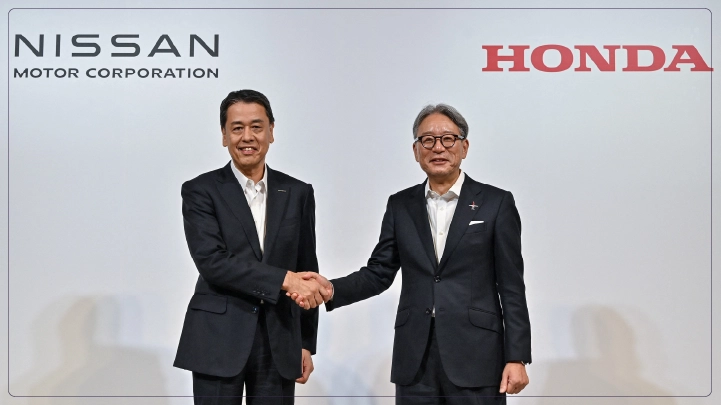February 2025
Honda and Nissan are reported to move forward into the merger discussions to hold the rank of the world's third-largest automaker with more than 8 million vehicles in sales annually. This move is considered necessary to compete with the emerging EV companies in China and also with Tesla. Since March 2024, these three Japanese automakers, Honda, Nissan, and Mitsubishi, have been associated very closely with the established joint investments and research activities. Now as per various analysts, it would lead to improved operational efficiencies and innovations because they will co-develop different kinds of platforms, keeping the cost-effective and competitive communication open for vehicles so produced. The merger is expected to change the global playing field of automobiles as well as create alliances with technological and economic shifts.

Honda, Nissan, and Mitsubishi are seen combining their operations to form the third-largest automaker in the world with approximately 8 million vehicles sold annually. The joint venture owned a 24% stake in Nissan and sold nearly 4 million vehicles all over the world in the first half of 2024. It is strategically seen as a resource move for electrification and autonomous technology, which need much funding. According to industry expert, Jessica Caldwell from Edmunds, such small car makers would have to come together to compete with big ones to reduce the high cost of development. The partnership, which in August 2024 expanded to include Mitsubishi Motors, focuses on next-generation EV platforms and battery technologies as well as addressing the financial and operational pressures of producing EVs.
The automotive industry may not look the same again due to the government mandates for electric vehicles (EVs) and the consumers' demand for more sustainable alternatives. Practically, companies such as Honda and Nissan encounter financially troubled waters because of decreased demands from the US and European markets and more competition from new entrants from China. Mergers would allow scale to reduce costs and improve profitability. A combined company would continue operating under a holding company structure that would allow Honda and Nissan to retain operational independence without a pool.
Such a partnership would open avenues for standard platforms, possible joint ventures in battery technologies, and integrated software systems that would benefit consumers through higher innovation in a more cost-effective vehicle.
The Honda-Nissan partnership would strengthen their position in the EV market and create an incubator of innovation. Such merger action may also initiate rivals to do so, changing the face of the auto industry. Although no details have been confirmed by either company on the current merger talks, a prospective partnership indicates a proactive response in coping with the fast-changing industry. Thus, Honda and Nissan would be combining their capabilities, know-how, assets, and market strength in order to make a head start in transforming the mobility paradigm into a more sustainable one. This move could become the blueprint for success in the world of automobiles.
February 2025
February 2025
February 2025
February 2025